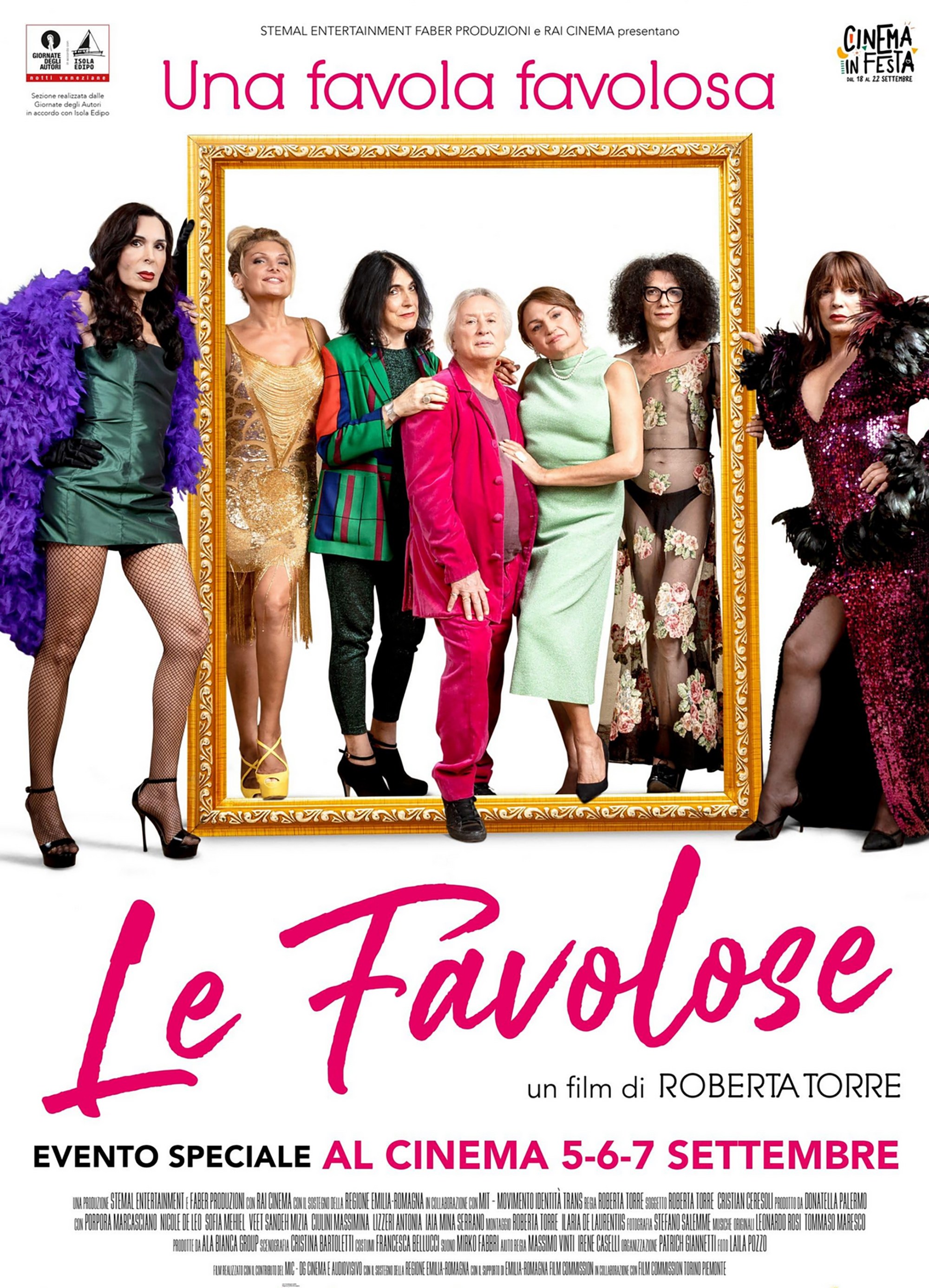
- Festivals
“Le Favolose” at 2023 Outfest LA Film Festival
The Italian film Le Favolose (The Fabulous Ones) will likely make a splash with all its queer exuberance and feel-good attitude at the Los Angeles Outfest on July 16. Roberta Torre’s film is the story of seven LGBTQ+ friends who get together to celebrate and remember their dead friend Antonia, who’s been buried dressed as a man against her will. This poignant tragicomedy has been getting a lot of attention wherever has been screened, with audiences joyously embracing Le Favolose and their irresistible charm.
The film recently won the Best Director award at the Amsterdam’s IDFA, and it was acclaimed at the Tokyo Film Festival and the London LGBTQIA+ Film Festival, among many other festivals where has been showcased.
“Antonia represents all trans people who have lost the battle in the recognition of their identity at the moment of their death,” said co-writer and director Roberta Torre in the production notes. “This film is a contribution to the search for freedom, a hymn to those who make their life a free path, with strength, courage, tears, joy, despite everything.”
Le Favolose is an Italian co-production of Stemal Entertainment, Faber Produzioni and Rai Cinema, produced by Donatella Palermo. Writer/director Torre, born in Milan, Italy, has debuted in film with Tano da morire (1998) – a humorous and ironic take on Mafia – followed by Sud Side Story, a musical re-visitation of Romeo and Juliet. She’s also known for Angela (2001), Mare Nero (2006), I baci mai dati (2010), and Riccardo va all’Inferno (2017).
Playing the main character roles in Le Favolose are Porpora Marcasciano, a well-known activist and author in the Italian LGBTQ community, Rocco Castrocielo, Mizia Ciulini, Nicole De Leo, Sofia Mehiel and Antonio Iaia, the residents of a villa housing transgender women, who are trying to fulfill their late friend last wish.
“The disavowal of one’s identity remains for many trans people a second death, that of their memory,” says Torre, who goes on explaining that Antonia – in the film – is buried with her birth first name, Giampaolo, with people’s indifference. Twenty years later, the discovery of a letter pushes her best friends, Porpora and Nicole, to organize a meeting of the Memorable Royal Family, the group of “chosen ones” in their trans world, to relive an entire day all together in the same spot, as they used to do fabulously over weekends many years before. Antonia will be called back in a seance. And will finally wear something appropriate.
Says Torre: “I started thinking about this film with Porpora [Marcasciano] in 2015. I read her books and I fell in love with her story and journey, and thanks to her I learned a lot about trans people. But I still couldn’t find a story that could become a film, a story which I could also relate with, until I encountered the one, I called Antonia in this film. She represents all the trans people who have lost the battle of recognition of their identity at the moment of their death. All those people who on their last journey were betrayed and robbed of their history, their identity, the path they have built in this life, including their clothes. Dressed as a man for their last farewell, they left this world with an identity that does not belong to them and which for their families of origin is a guarantee of social order. It’s a violent gesture, a depredation of their identity.”
Porpora Marcasciano, 65, is an historical figure in the Trans movement in Italy since the 1970s, and one of the founders of FUORI! gay “outing” activist community (she’s now President of the Committee for Equal Opportunities in the city of Bologna); she’s the author of several essays on the Italian LGBT world, including “AntoloGaia, I miei anni ’70”, “Favolose narranti. Storie di transessuali”, “Tra le rose e le viole. La storia e le storie di transessuali e travestiti”. Porpora became an activist following the assassination of poet, essayist and film director Pier Paolo Pasolini in 1975. With Marco Sanna and Enzo Ienna, Porpora founded the collective NARCISO (Italian acronym for International Subversive Homosexual Armed Communist Revolutionary Groups). In 2016 Porpora was awarded as Human Rights Defender by Amnesty International, and in 2021 the UN has listed her among the leading seven trans activist in the world.
“With Roberta Torre we looked for each other and found each other,” says Porpora in the production’s notes. “We observed, scrutinized, questioned each other for a long time, sufficiently to focus on the extremely delicate subject of the trans experience. Finding a film with the right approach to this subject has been very rare. Actually, I’ve never seen a film telling a story of this significant human experience with honesty and respect, and mainly with a first-hand understanding. Roberta and I and all the other fabulous ones have gone all in to tell an honest story of us without recurring to tired cliches and over the top stereotypes.”

